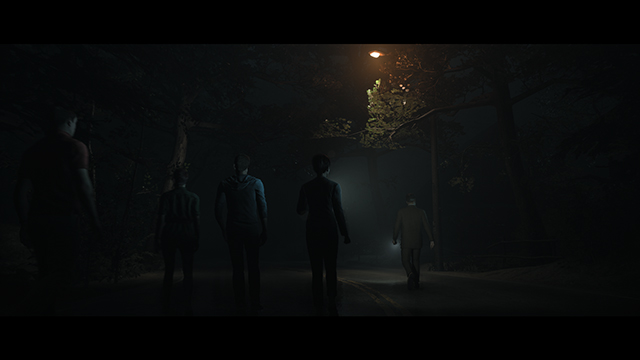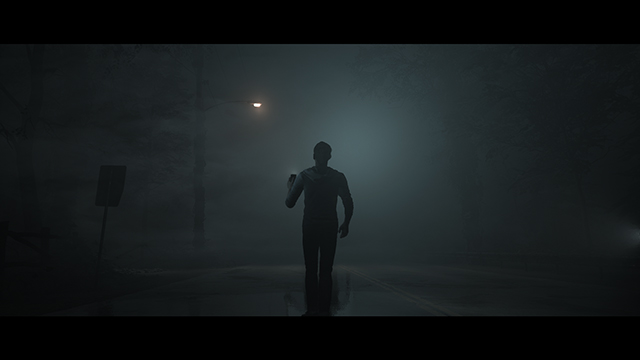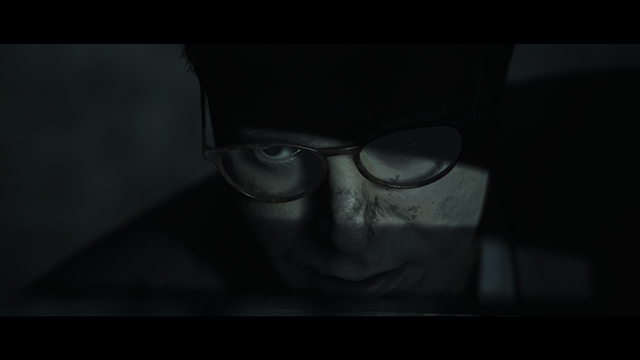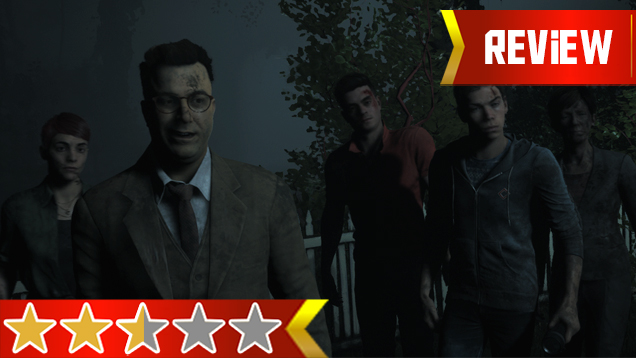THE DARK PICTURES ANTHOLOGY: LITTLE HOPE REVIEW FOR PS4, XBOX ONE, AND PC.
Supermassive’s exciting foray into anthology horror with Man of Medan seemed to undo a lot of goodwill the studio had built up the out-of-nowhere hit, Until Dawn. That ship-based horror title wasn’t awful, but a clear step down. Little Hope, the second entry into the Dark Pictures Anthology, has a lot more riding on it because it has to prove whether Man of Medan was the anomaly or if Until Dawn was. It seems more like the former since unlike the falsely accused witches it so heavily features, Little Hope deserves to be burned at the stake for its sins.
Technical witchcraft

Little Hope is not a wart-covered witch in all aspects though as it’s quite the visual stunner, looking and running better than its predecessor. Shadows drape much of the cursed town, showcasing the incredible, realistic lighting that helps set a spooky mood and point out how lackluster lighting is in some other games by comparison. Darkness doesn’t hide the impeccable level of detail as each environment is painstakingly rendered and full of items that look great even when zoomed in on. Details like these make the world feel real and lived in, which is ironically necessary for a game so obsessed with death.
The alive cast members are similarly impressive. Not only are they molded with the same high-quality level as the environments they inhabit — complete with battle scars as the night wears on — but they are as lovingly animated, too. Performances are generally decent across the board and they’re beautifully recreated in the game and some of Supermassive’s best work in that department. The occasional dips into the uncanny valley only stick out because of how many times the animation is genuinely remarkable.
Hocus dopus

Superb animation is important in a narrative-focused game like Little Hope, which makes it doubly disappointing that it has such a lackluster, sporadic story. After a freak bus accident, five colleagues find themselves in the titular Silent Hill-esque town of Little Hope. Covered in impenetrable fog, unending darkness, and an occult-style mystery, the group of five has to survive long enough to call for help while fighting odd premonitions that constantly put them in danger.
Witches and the culture around them are a particularly popular premise in horror fiction, but Supermassive has shown its ability to take well-trodden territory and turn it into something special. Little Hope lacks that finesse by fumbling its good ideas and falling under the spell of mediocrity.
The dual narrative is one of its solid ideas as it is a means of holding up mirrors to the characters and it does so with a supernatural twist. It plays with that idea well in that beginning as it pantomimes themes of how history repeats itself while integrating varying amounts of player choice. A dual narrative between times with input from the player is a creative foundation to build such a customizable game around as you discover and build connections yourself.
Lost in the fog

Despite its intentions, it’s the execution that keeps it from fulfilling its potential. It’s hard to see how your actions in the past resonate in the future even though the game is determined to constantly crowd the screen with different pop-ups and bits of text after each interaction. Somehow, the barrage of meters and messages that you can’t turn off are both intrusive and utterly unhelpful.
This overbearing approach is also puzzling since the game is too linear to feel divergent enough to require such incessant clarification. Most of the game is spent walking down a narrow country road with almost no chance to branch off or make other choices, which seems to gut the notion of its perceived replayability. Even the Curator’s Cut is bizarrely similar to the regular cut is hardly worth the extra run, even during co-op.
Choices in both versions seem have at least some impact, yet knowing what they impact isn’t always clear. Innocuous responses might end up being your death sentence in the ending where characters can be doomed for dialogue options chosen hours ago. When this happens, the game will pause, show you a locked character trait via on-screen text, and the cut back to the murder-in-progress. It’s both vague and unimmersive, combining two of the game’s shortcomings in one frustrating instance.
Failing a quick-time event (which give handy warnings now) has clear implications but dialogue choices aren’t always as obvious. Consequences should usually be more apparent when the action is made. Players should be able to connect the dots and not be forced to read UI elements in a desperate and misguided attempt to understand their choices hours after their destiny has been locked in. It’s quite a disconnect.
Confusing, distracting deaths pale in comparison to the twist at the very end that retroactively makes the whole game worse. It’s poorly teased, seemingly random, and gobsmackingly unimaginative to the point of almost being a parody. The themes of duality and history get tossed right into the bonfire for the sake of a terrible Twilight Zone-like curveball that just ends up cheapening the preceding events rather than wrapping it all up with a memorable, shocking climax.
Good, scary horror can overcome narrative mishaps, but Little Hope is hardly ever more than marginally tense. Dim lighting and musty environments can do some work setting the scene and the mostly obscured monster designs are unsettling, yet it is up to creative scares to actually make good on that promise. Much like Man of Medan, Little Hope relies all too heavily on cheap, repetitive jump scares that hardly register after the third or fourth time. Getting pulled into the past also recycles the same jump scare method each and every time and just devolves into a predictable annoyance.
Little Hope Review | The final verdict

Little Hope’s namesake has somewhat of a dual meaning. It is the name of the town in the game and it’s also representative of the little bit of hope that Supermassive would learn from its mistakes and get back to making classic horror adventures. But its multiple thematic troubles, pathetic cavalcade of jump scares, and abysmal twist ending paint a dark future for The Dark Pictures Anthology, leaving little hope that it’ll ever recover from two disappointing adventures in a row.
Game Revolution reviewed Little Hope on PS4. Code provided by the publisher.
-
Gorgeous visuals, impeccable lighting, and impressive performance capture.
-
Dual narrative has some promise early on.
-
Awful twist ending that retroactively makes the whole game worse.
-
Overreliance on jump scares is numbing.
-
Obtrusive UI pop-ups constantly invade the screen.
-
Too linear to feel truly divergent.







